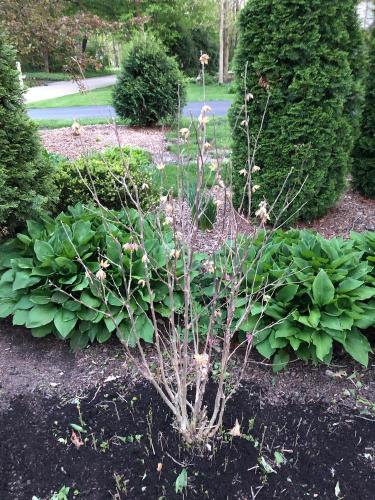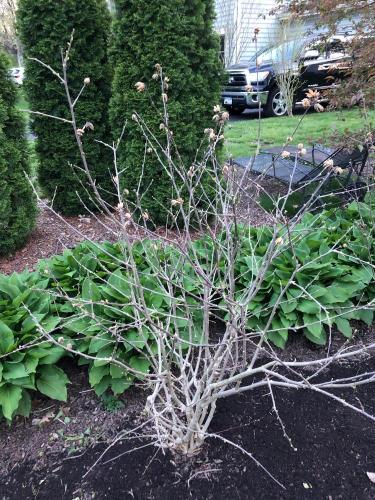Thanks RJ. I read that NBC article and I have visited the Morton Arboretum website, among others. Some articles list Rose of Sharon among the plants that female cicadas lay their eggs.
I just came across this article that said, "Annual cicadas do not ordinarily cause much damage. Periodical cicadas damage trees above and below ground. The most obvious damage is that caused by egg laying in small twigs. This damage causes twigs to split, wither, and die, causing a symptom called "flagging." Flagging is especially serious on young plants (four years or younger) because more of the branches are of the preferred size for oviposition, 6 to 12 mm (1/4 to 1/2 inch) in diameter. Some of the more favored trees for oviposition include maple, oak, hickory, beech, ash, dogwood, hawthorn, magnolia, willow, apple, peach, cherry and pear. Flowers, vines and shrubs include: Rose of Sharon, rose, raspberry, grape, black-eyed Susan, hollies, spirea, rhododendron, viburnum, junipers, and arborvitae. More than 270 species of plants have been noted as hosts for egg laying female cicadas. Damage is also done by the nymphs that suck sap from roots. Prolonged feeding by nymphs on a tree's root system may reduce plant growth and fruit production."
So I'll probably buy more netting and cover my Rose of Sharon plants even though my lawn maintenace guy said I didn't need to. Thanks again.
https://web.archive.org/web/20...

